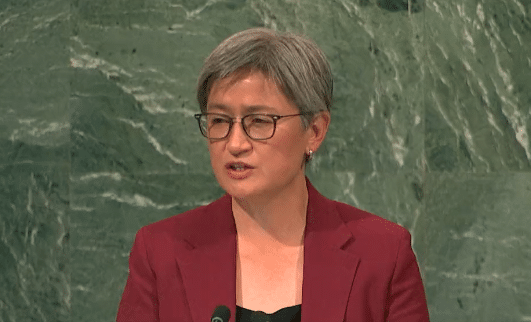Australia has finally committed to establishing gender and climate targets for foreign aid projects, following an announcement by the Albanese Government today.
But it’s disappointing to see that the announced strategy does not include any immediate and specific funding commitments, given the challenges facing women and girls internationally, and particularly across our Pacific neighbours, due to climate change.
The changed rules mean that all new international development projects worth more than $3 million must now include a gender equality objective. From 2025, the new rules will require half of all $3 million plus investments to include a climate change objective.
Also following the Government’s Development Finance Review, the Albanese Government will establish Australian Development Investments, a new mechanism providing up to $250 million as a catalyst for private impact investment in the Indo-pacific.
Foreign Affairs Minister Penny Wong announced the move, noting how “development and prosperity underpin peace and stability.”
“Placing gender equality at the centre of development creates opportunities for people to thrive, making our countries stronger, more secure and more inclusive,” the statement on the policy changes noted.
Incredibly, these changes mark the first major shake-up in Australia’s foreign aid program in more than ten years. It’s important to note they also come as Australia seeks to counter China’s influence across the Indo-Pacific.
So is it enough? Climate change is impacting women and girls internationally and domestically right now. But it’s particularly dangerous for those in the Pacific, given the direct vulnerability of small island developing states. In the past few years, Vanuatu and Fiji especially have suffered enormous losses and added instability due to the increasing frequencies and intensity of cyclones.
That’s why as far back as 2019, the UN Secretary-General noted the already increasing number of “complex emergencies, which disproportionately affect women and girls” and called for urgent analysis and “concrete, immediate actions to address the linkages between climate change and conflict from a gender perspective.”
Climate change is a threat multiplier that further disadvantages already marginalised people. As Yasmin Poole found interviewing women across the Pacific in 2022, climate change is worsening gender equality in communities real time, including in terms of girls’ education, access to economic opportunities and safety. The Malala Fund estimates that four million girls will be pulled out of education due to climate disasters, including physical damage to schools. There is also the rise of gender-based violence following disasters, like cyclones in Vanuatu.
While Australia’s aid budget is set to grow from the $4.7 billion outlined in 2023-24 budget over the coming years, it still falls very far short of what’s being spent on defence, notably the $368 billion over the next three decades for a fleet of eight nuclear-powered submarines.
Overall, Australia’s aid budget is no match for the climate change-related challenges ahead, especially when you consider its decline during ten years of Coalition government. 2022 analysis by ANU found that for every $12 spent on defence, just $1 goes to aid. This ratio was $1 in aid to $6 in defence in previous decades.
Australia’s new foreign aid rules have been announced in a bid to help counter China’s ambitions in the region, with the policy noting the Indo-Pacific will remain the key focus for Australia’s foreign aid.
“Australia is using all elements of our national power to advance our interests and shape the world for the better,” Wong said.
The new policy also highlights the priority that Australia’s Pacific partners are placing on expecting Australia to take ambitious action on climate change.
“It remains a foremost concern of our Indo-Pacific region and is the single greatest threat to the livelihoods, security and wellbeing of pacific peoples.”
Incorporating gender and climate targets into foreign aid spending is certainly welcome. Australia must now demonstrate a commitment to how urgent and dangerous the situation is right now.

